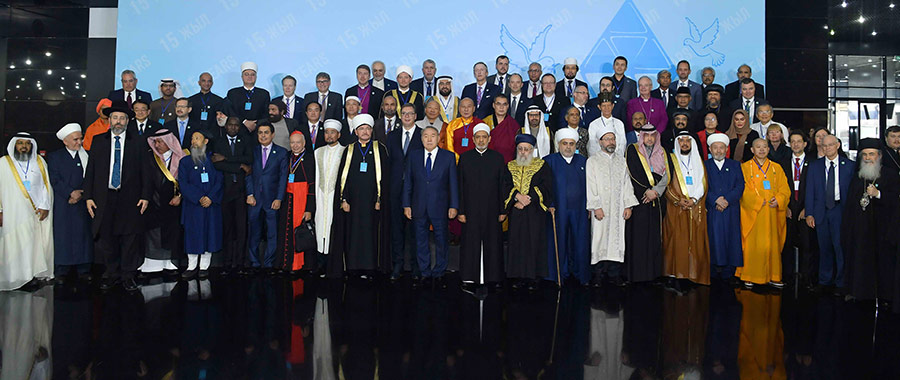In an increasingly interconnected global society, the ramifications of prejudice and intolerance echo profoundly across social, cultural, and economic landscapes. Discriminatory behaviors, stemming from deep-seated biases, pose significant barriers to the actualization of a harmonious world. The teachings of the Bahá’í Faith illuminate a path toward transcending these detrimental attitudes—urging individuals to cultivate a mindset imbued with unity, equity, and respect. Overcoming prejudice and intolerance is not merely a moral imperative; it is essential for fostering a safer world where diversity is celebrated, and human dignity is upheld.
Prejudice, often born from ignorance or fear, leads to the categorization of individuals based on race, ethnicity, gender, religion, sexual orientation, and other defining characteristics. This divisive mindset perpetuates stereotypes, fostering an ‘us versus them’ mentality that can culminate in discrimination, violence, and societal fragmentation. Intolerance, while often a direct offspring of prejudice, manifests as a refusal to accept, understand, or engage with those who differ from oneself. Together, these social maladies have historically precipitated humanitarian crises, ignited conflicts, and undermined collective well-being.
The Bahá’í teachings advocate that the antidote to these pervasive issues lies in the recognition of the oneness of humanity—a principle that underscores the inherent worth of every individual. This foundational belief posits that regardless of external distinctions, all human beings share a common origin and, consequently, an intrinsic value that must be acknowledged and respected. Accepting this tenet can catalyze a monumental shift in perspective, encouraging individuals to view their neighbors not as adversaries but as integral components of a collective tapestry. By embracing this perspective, individuals can cultivate empathy, fostering deeper connections that transcend superficial differences.
Moreover, it is crucial to acknowledge the historical ramifications of prejudice and intolerance, which manifest in contemporary societal structures. Societal norms, oftentimes tacitly endorsed, perpetuate discriminatory practices that disenfranchise marginalized communities. The intersectionality of identity crises, slavery, segregation, and systemic inequities illustrates the pervasive nature of these issues. In essence, failing to address the roots of intolerance can lead to a perpetuation of cycles of violence and division, thwarting efforts toward a unified existence. The Bahá’í Faith encourages proactive engagement to dismantle such structures, advocating for policies and practices that promote equity and justice.
Strategies for overcoming prejudice and intolerance within the framework of the Bahá’í teachings include education, community building, and dialogue. Education serves as a powerful tool to debunk myths and dismantle stereotypes. Initiatives that promote historical awareness and cultural competence foster understanding and mutual respect among diverse groups. When individuals are equipped with knowledge, they are less susceptible to biases, thereby reducing the adversarial nature of societal interactions.
Equally important is the establishment of inclusive communities that implore dialogue and consensus-building. The social fabric of a community weaves its strength through diverse threads. By cultivating spaces where individuals can engage in open discussions, explore differences, and share experiences, communities can foster tolerance and understanding. The Bahá’í teachings emphasize the importance of consultative processes in resolving conflicts and nurturing harmonious relationships. Such collaborative efforts not only alleviate tensions but also build solidarity among individuals with diverse worldviews.
Furthermore, the role of spiritual and moral development cannot be overstated in the pursuit of a safer, more inclusive world. Individuals must engage in self-reflection to confront personal biases and unlearn prejudicial attitudes. This often necessitates challenging one’s own entrenched beliefs and remaining open to transformation. The Bahá’í principles advocate for a commitment to personal growth—encouraging individuals to embody virtues such as compassion, humility, and inclusiveness. In doing so, one becomes a beacon of unity, inspiring others to embark on a similar journey of self-discovery and understanding.
A compelling aspect of overcoming prejudice and intolerance is the recognition of its far-reaching implications for global peace and stability. Discrimination and intolerance not only harm individuals but also impede collective advancement. A world rife with division is one where conflict flourishes, resources become scarce, and societal progression stagnates. Conversely, a community enriched by diversity cultivates innovation, creativity, and resilience. By embracing difference, the potential for collaborative efforts that address global challenges expands. The Bahá’í teachings underpin this notion, promoting the idea that diversity is an asset to be cherished rather than an obstacle to be feared.
In conclusion, the imperative to overcome prejudice and intolerance is not merely a lofty goal but a crucial necessity for the cultivation of a safer world. The teachings of the Bahá’í Faith provide a comprehensive framework that encourages individuals and communities to engage in transformative actions. By embracing the principles of oneness, fostering education, building inclusive communities, and committing to personal moral development, humanity can forge a path toward reconciliation and peace. The journey to eradicate prejudice and intolerance is arduous, but it is one that can pave the way for a future defined by unity, respect, and mutual understanding. Indeed, the essence of a safer world lies in the profound recognition that our differences enrich the human experience, weaving a collective narrative of hope, understanding, and compassion.
